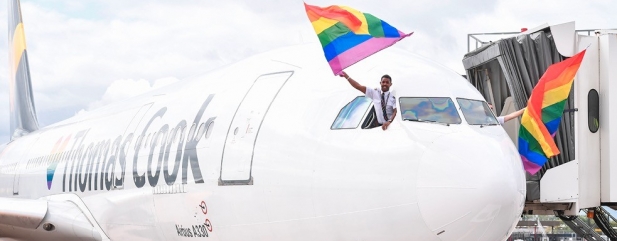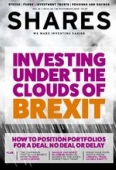Archived article
Please note that tax, investment, pension and ISA rules can change and the information and any views contained in this article may now be inaccurate.
Shareholders feel the pain of Thomas Cook’s demise

The demise of travel operator Thomas Cook is not only awful for its customers and staff but also for shareholders who have lost all their money.
While its customers should be able to get a refund for any holidays booked and not yet taken, via the ATOL scheme, travel insurance cover or debit/credit card issuers, shareholders don’t have such protection.
The Government has explicitly stated that shareholders will receive nothing from the liquidation of Thomas Cook. It says ‘there is no prospect of a return’ to shareholders.
This situation is a good reminder of the higher risks associated with investing in stocks and shares. There is a pecking order to follow during liquidation and shareholders are at the back of the queue when it comes to seeing if any value can be realised by selling a failed company’s assets.
When a company goes into liquidation, creditors fall into different groups ranked in a specific order. The first group must be paid in full before funds are allocated to the next group.
Creditors are ranked as followed:
Secured creditors
Preferential creditors
Secured creditors with a floating charge
Unsecured creditors
Shareholders
A lot of investors focus on what could go right with a business – but not enough attention is paid to what could go wrong.
Thomas Cook has been in financial difficulty for a long time due to having large amounts of debts to repay, fees on aircraft leasing and Brexit uncertainty causing the public to delay booking holidays. The lack of cash left over to invest in the business has also left it lagging behind the competition.
Arguably these factors aren’t new and so anyone investing in Thomas Cook should have been aware of the major risks to owning the stock.
Having the right expectations for potential returns is crucial with investing. Picture a ladder and the different rungs, each representing a higher risk investment as you climb up.
Someone who doesn’t want to take high risks would naturally look to park their money in cash or something like UK Government bonds. They would be at the bottom of the risk ladder. Next up might be an investment grade corporate bond and as you keep climbing you eventually reach equities.
But even equities are spread across a range of risks and Thomas Cook would arguably be nearer the top. You hold the shares expecting a positive return as compensation for the risks involved. The upside for a very high risk investment is a big capital gain and the downside is losing everything, as the holiday company’s shareholders have now discovered.
One private investor on Twitter said they bought Thomas Cook shares at the start of the year, with no doubts about the high risks. Having still owned them at the time of the liquidation, they said: ‘Please feel sorry for the potential stranded holiday makers, not me. I fully understood the magnitude of the gamble.’
This is a good example of someone who had set the right expectations and was aware of what could go wrong. Losing money is always unpleasant but it does reinforce the message that investing is not easy and you always need to know what you’ve got yourself into.
Important information:
These articles are provided by Shares magazine which is published by AJ Bell Media, a part of AJ Bell. Shares is not written by AJ Bell.
Shares is provided for your general information and use and is not a personal recommendation to invest. It is not intended to be relied upon by you in making or not making any investment decisions. The investments referred to in these articles will not be suitable for all investors. If in doubt please seek appropriate independent financial advice.
Investors acting on the information in these articles do so at their own risk and AJ Bell Media and its staff do not accept liability for losses suffered by investors as a result of their investment decisions.

 magazine
magazine








